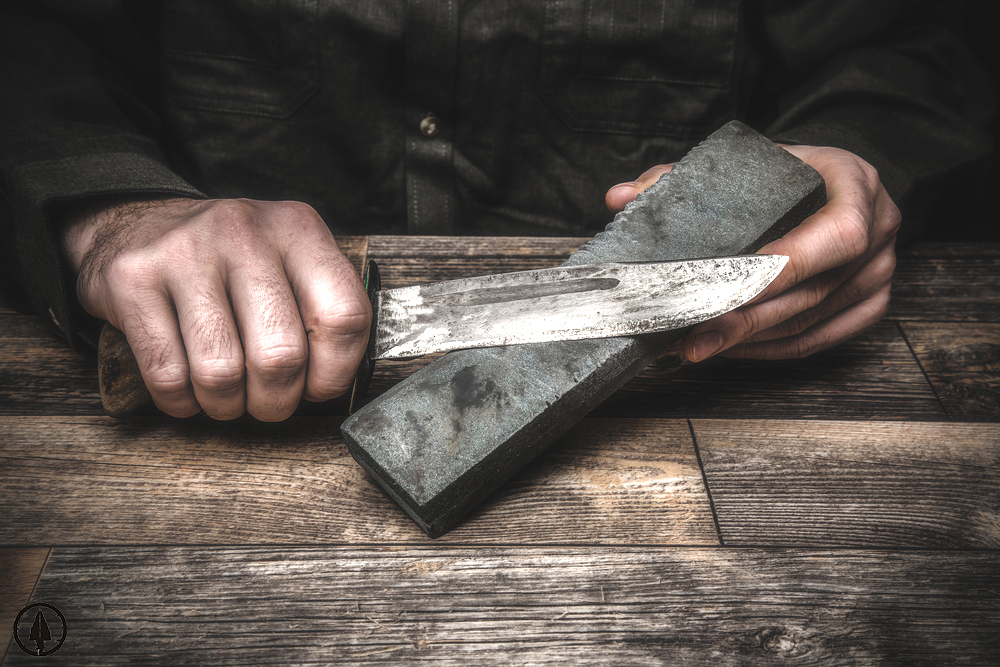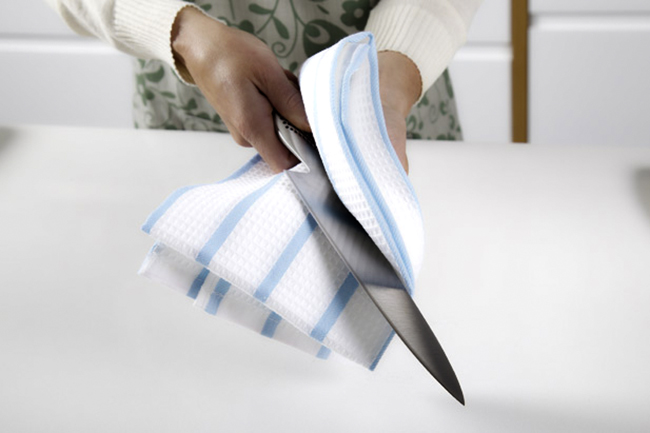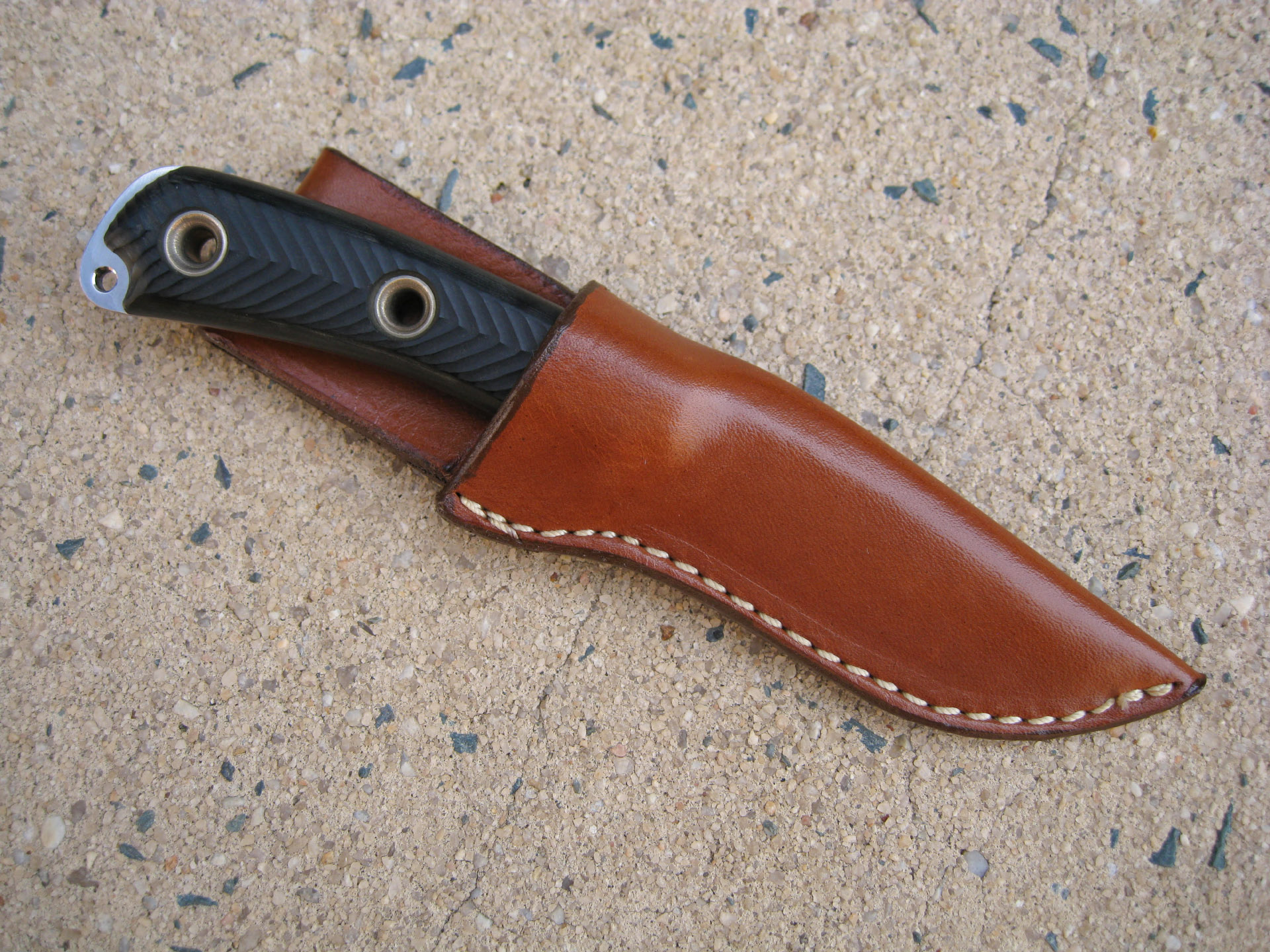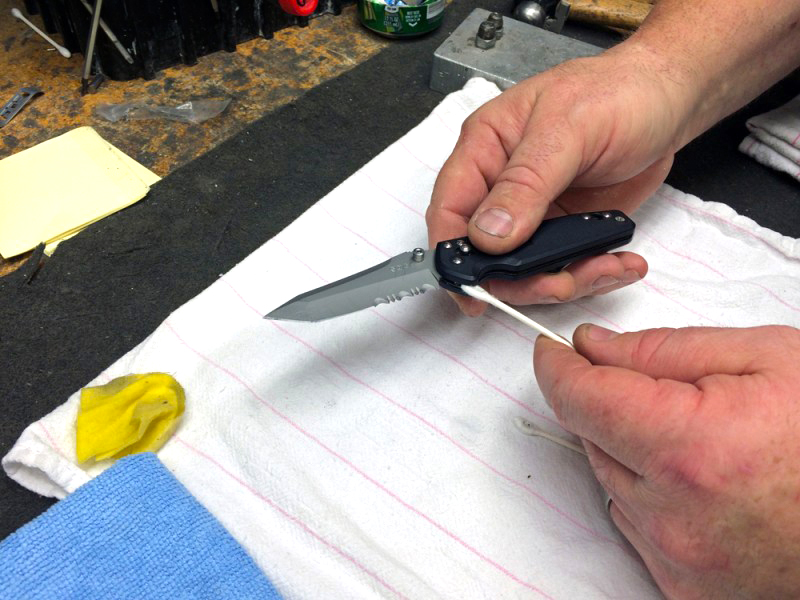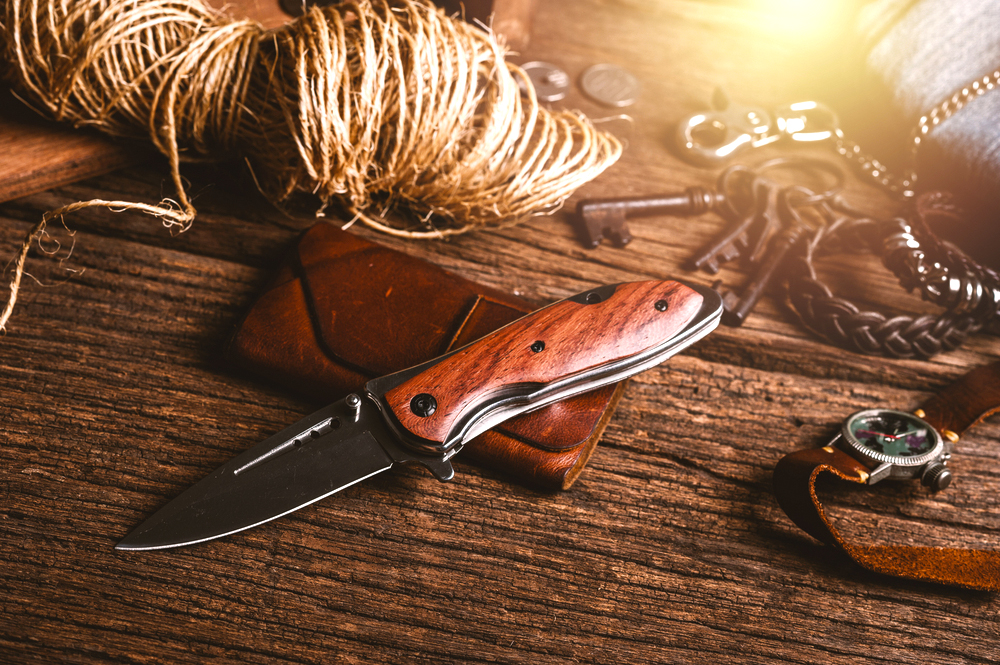Hunters value their knives by providing them with proper care and maintenance.
A good hunting knife will not only cut your bacon but might, on occasion, save it too.
It goes without saying that you should value your knife the same way you value your hiking shoes and tents. Perhaps even more so.
I guess you’ve read a specialty knife guide and already possess a high-quality hunting knife. Whether it’s a budget knife or an expensive brand, the impact of a well-kept knife is huge.
It’s your responsibility to increase the lifespan of your hunting knife. Want to know how?
Here are a few tips to help you get the very best out of your hunting knife:
Contents
Clean Your Hunting Knife
Never put away your knife unless it is clean and dry. Your knife is a workhorse, so it’s bound to get wet and dirty. Best practice dictates that your knife is clean and dry before you sheath it or store it away.
Ever our hands release oils and will make your knife dirty, especially if the hands are sweaty. Since sweat contains minerals such as ammonia and salt, it can easily penetrate the metal, causing metal corrosion.
Most steel knives are dishwasher safe, but that doesn’t mean this is the correct technique to clean your hunting knife.
How to Clean Your Hunting Knife
Here are the proper steps:
- Wash your knife with some hot soapy water (dish soap and water). To clean carbon steel knives, use water and baking soda.
- Use a non-scratchy soft cloth to dry clean your knife. Make sure you don’t scrape the blade, though.
- If your knife contains strong stains, use a blend of salt and vinegar and a rag to remove them. After that, clean the knife again with dish soap and water and dry it with a soft cloth.
- Don’t touch the steel with your hands. Our hands’ sweat contains ammonia, urea, and salt and is left behind from our fingerprints.
- Finally, store your knife in a dry and clean place.
Store your Knife in Good Condition
Once you clean your knife properly, it’s time to place it safely. If you plan to use your knife soon, it is advised to keep it in a thermoformable (acrylic-polyvinyl) or nylon sheath.
However, if you plan to store your knife for a longer time, use plain paper. Wrap your cleaned and dry knife in it and put it in a plastic bag. It is highly recommended to use desiccants as well.
What about leather sheath? Well, it makes a good outdoor storage for your knife, but avoid leaving the knife in it for a longer period of time.
The reason behind this advice is the chemicals that are used to create the sheath. Unfortunately, the leather sheath is not acid-free and will lead to knife corrosion.
It is highly recommended to store your knife in dry places, free from humidity. Storing a knife in a soiled condition is something you should avoid. And remember, don’t leave your knife exposed to moisture.
Lubricate the Knife
To reduce friction, all objects require lubricators. Machines, cars, and other moving objects use oils to make friction as small as possible.
Whether folding or not, hunting knives create friction, too, and we use oil to reduce it.
Lubricate your knife with all-purpose oil to keep it from getting rusty and to protect it from corrosion.
Besides, folding knives require proper lubrication to remain efficient. Any oil-based lubricant applied to the various moving parts will ensure its function.
Don’t overdo it, and remember to wipe away any excess oil. In fact, let’s talk about the steps of how to lubricate your hunting knife properly.
How to Lubricate Your Hunting Knife
To perform the lubrication correctly, here is a step-by-step guide to follow:
- Use a small amount of oil to lube your hunting knife. Using too much oil will attach unwanted elements to your knife.
- The oil should be all-purpose, enabling complete care for your knife.
- Be cautious; oiling the handle will make it slippery. Instead, use linseed oil to lubricate a wooden handle. Leather handles can be treated with mink oil. Rubber handles (or other synthetic materials) don’t require oiling.
- In case you are lubricating a folding knife, don’t forget to use oil on the joints and other moving components.
- Rub away any excess oil with a cleaning cloth.
Regular honing of the blade helps ensure it remains sharp and crisp, ready for the next task. Using a whetstone to sharpen your hunting knife is an even more serious and professional way to make sure your knife is extra sharp.
Think of honing as changing the oil in your car and sharpening as a complete tune-up of the motor. Likewise, it is recommended to hone your hunting knife after every use.
Choose the Right Knife for the Task
Don’t abuse the knife. Keep in mind that specialty knives are designed for specific purposes. Choosing the right knife for the task at hand is crucial to keep your knife at its very best.
A camping knife is designed to be used for tasks around the campsite. Unless it comes with a pommel built into the base, you’ll be well-advised not to use it as a hammer.
Also, avoid using a knife like an ice pick or a screwdriver. Most importantly, don’t practice throwing it unless it’s a specially designed throwing knife.
Wrapping It Up
Cleaning your knife is crucial to maintaining a perfect form. It’s a well-worth investment of time and money.
Honing your knife regularly is strictly advised, just as whetstone sharpening from time to time. Store your knife in good condition and dry places. Obtaining a proper sheath is a must, too.
In the end, the best way to take care of your knife is to use it only for its purpose. Thus, choose a specialized knife for a specific task. After all, showing our knives some love is a sign of a professional hunter.

Hi, my name is Michael Goodman. As a skilled hunter and a man of the field, I will show you some sophisticated, intelligent, and useful hunting methods and techniques.

